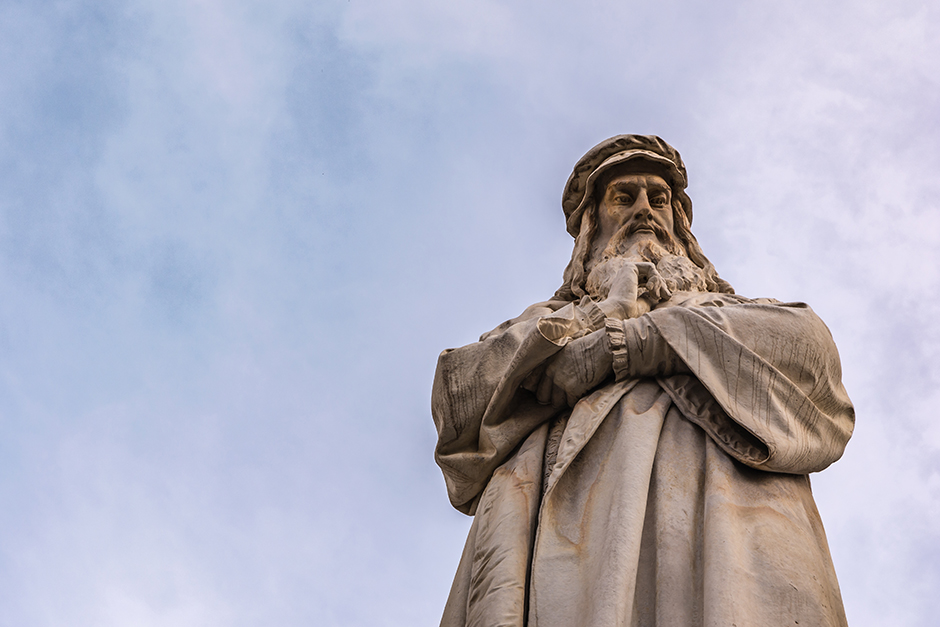Almost nine years ago, the College of Arts and Sciences introduced a program inspired by the artist, humanist, and scientific genius Leonardo da Vinci rightly named the da Vinci Program.
Created as an interdisciplinary program for first- and second-year University of Miami students, the da Vinci Program fosters a passion for learning and knowledge by bringing the humanities, the sciences, and the social sciences together in thought-provoking ways.
“The humanities are the lynchpin of the program because there's a particular emphasis in the humanities on critical thinking and qualitative understandings of human values, ethics, and aesthetics,” says current director of the da Vinci Program, Catherine Newell, a professor of religious studies. “While the humanities don't have exclusive ownership of those skills, the humanities involve developing a particular lens on human life, history, and endeavor that both enriches and informs other fields of study.”
Select incoming freshmen are invited to participate in the program and offered several courses within the humanities, which they complete over consecutive semesters. The program’s diverse courses range from environmental thought to the classics, climate change, art sculpture, and media, to name a few.
Da Vinci scholar Alexis Masciarella, who is pre-law and majoring in religious studies and political science with a minor in sociology, says she likes what the “program stands for—using the scholar and artist Leonardo da Vinci as a Renaissance symbol who had his hands in everything. This turned out to be a perfect program for me. I am so proud and happy to be a da Vinci scholar.”
Newell says students are chosen based on their reported interest at the time of application (e.g., a student who wants to major in both computer science and history, or major in Africana Studies and minor in chemistry).
“We try to find and bring together students whose interests indicate that they already see the connections between the humanities and the sciences, the arts and the social sciences,” adds Newell. “We then try to give them the opportunity to build bridges—both in the program and in their regular coursework—between the various disciplines.”
Joseph Broehl, a political science and philosophy major, says he has benefitted greatly from the da Vinci Program. Admitting that he didn’t really know much about the program when he was first invited, Broehl likes the diverse personalities of the professors whose classes he has taken so far.
“I would never have taken a classics class if it wasn’t for the program,” adds Broehl, who also minors in gender and sexuality studies. “This semester will be my last class in the program, and I’m sad about that because the classes have all been really interesting.”
For more information about the College’s da Vinci Program, click here.

